Meet the Councillors of the Twelfth RANZCOG Council
Find out more about who is representing you on the RANZCOG Council
The Twelth RANZCOG Council began their term in November 2021. Here, we chat to each new Councillor to get to know them, and what they hope to bring to their positions of leadership. We will add to this article as we interview each new Councillor, and keep you updated of new interviews via Connect.
RANZCOG Councillors in Victoria
Dr Jenny Dowd
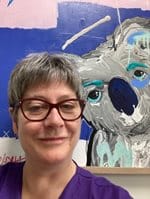
Dr Jenny Dowd is a Victorian representative of the RANZCOG Twelfth Council
I am a Melbourne born, postmenopausal mother of two adult sons who has dabbled in academia and worked in the both the public sector and private practice. Over twenty years ago I set up one of the first integrated private O&G group practices, and now in this latter part of my career I work mainly in obstetrics and office gynaecology.
Why did you nominate for council and what do you want to achieve?
As my boys are now independent, I have more time to become involved in other professional activities. As this is my second term on RANZCOG Council, I have a better understanding of how things work and I hope to contribute by bringing the views of colleagues to the various committees and the Board. As with many large organisations, the College, and in particular the Board, can appear to be detached from the daily problems of Members and trainees and I wish to be a bridge between these groups.
You represent Victoria. What are the issues in your state?
Victoria has similar issues to other states, particularly with respect to access to training in gynaecological surgery. We may not have the problems of distance and remote communities, but support for trainees and junior Fellows is important, especially with respect to their mental health and career planning.
What does the College mean to you?
I have had a connection with the College for a long time, being a trainee member of the original Women’s Careers Committee, which was initially set up to see how we could encourage more female trainees (one could argue we were too successful!). I’ve been involved with training as an ITP co-ordinator. Now working on several committees, I see how dedicated councillors and co-opted members are and how hard the College staff work to support the membership. One aspect I find refreshing is that RANZCOG is not partisan political and does not get involved with industrial issues or private practice remuneration, (unlike the AMA) and can therefore advocate for women’s’ health both in Australia and the Asia-pacific region in a broader sense as an independent body.
Tell us something that most people would be surprised to know about you.
I recently took part in “Flesh After Fifty”, a photographic project to highlight positive images of older women. This involved 500 women being photographed nude (often with a particular prop to hide the face thus ensuring anonymity and adding a personal touch). The exhibition ran for weeks as part of other health related activities organised by Professor Martha Hickey.
Dr Marilla Druitt

Dr Marilla Druitt is a Victorian representative of the RANZCOG Twelfth Council
I work 0.4 in public at Geelong hospital in O&G – mostly pelvic pain and lap gynae surgery. My gynae baby is the Persistent Pelvic Pain clinic which is an interdisciplinary monthly clinic to serve as a flagship for spreading the word, and to see tricky patients after an MDM/IDM which is fab. Rest of time is private land in O&G in a group practice and an RCT for pain and endo – the Happi study with Deakin.
I grew up in the burbs of Melbourne in the 80s wearing Madonna lace and socks over my jeans, in a cultural bubble for the first 18 years of my life.
Why did you nominate for council and what do you want to achieve?
I have enjoyed being a part of a group thinking about policy, standards and advocacy in Australia and New Zealand over the last three years on Council. The O&G Magazine Committee was great fun, and I am keen to continue. My goal for the next three years is to establish what trainees learn and are examined on about pelvic pain, and how to ensure it is integrated with the best in neuroscience understanding into our new curriculum.
You represent Victoria. What are some of the issues you want to address?
Providing surgical training – and I think bringing back GPs into our birth suites and antenatal clinics might be a win-win. We need a model to enable doctors who may be GPs to work in our public system, and be appropriately paid.
What does the College mean to you?
I am proud to be a part of a group of doctors and College staff who are passionate advocates for Women’s Health. We use our voices to be a force for science in our world for our communities and patients.
Tell us something that most people would be surprised to know about you?
I have chickens named after Geelong football players (Mrs Patricia Dangerfield) and inspiring leaders (Jacinda …. and Kamala who turned out to be a rooster somewhat noisily on a Zoom handover meeting one morning so was dispatched quickly to a farm).
Dr Michael Rasmussen
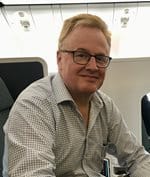
Dr Michael Rasmussen is a Victorian representative of the RANZCOG Twelfth Council
Associate Professor Michael Rasmussen, Clinical Director of Women’s and Children’s Program at Mercy Hospitals Victoria. Obstetrician Gynaecologist at Mercy Hospital for Women Heidelberg. Private Gynaecology practice in East Melbourne. Born in East Melbourne, I went to Melbourne University, and then worked at St Vincent’s and the Mercy for Women, with three years overseas in Dublin at the National Maternity Hospital. I have been working in Melbourne since then.
Why did you nominate for council and what do you want to achieve?
I enjoyed my previous time on Council, mainly working with the Education and Assessment Committee, and very much looking forward to a further term. My major interest is in education and assessment with a realisation of the changing nature and opportunities in gynaecology. I am very keen to support the outer suburbs and regions.
You represent VIC. What are the issues in your state?
Workforce. Making best use of the level 5/6 experience. Supporting the non-tertiary O and G providers across the state. Equity of patient access to all aspects of Women’s Health care.
What does the College mean to you?
A very important part of my life and career. An avenue to give back and support our colleagues, and the future of the profession. An opportunity to contribute to Women’s Health care in the broadest sense.
Tell us something that most people would be surprised to know about you.
No surprises left! I love all types of music. I play a number of guitars in my spare time and all extremely badly. I love cooking, ride an electric bike, and my wife Amanda is my best friend. But no surprises, sorry!
Dr Deborah Nisbet
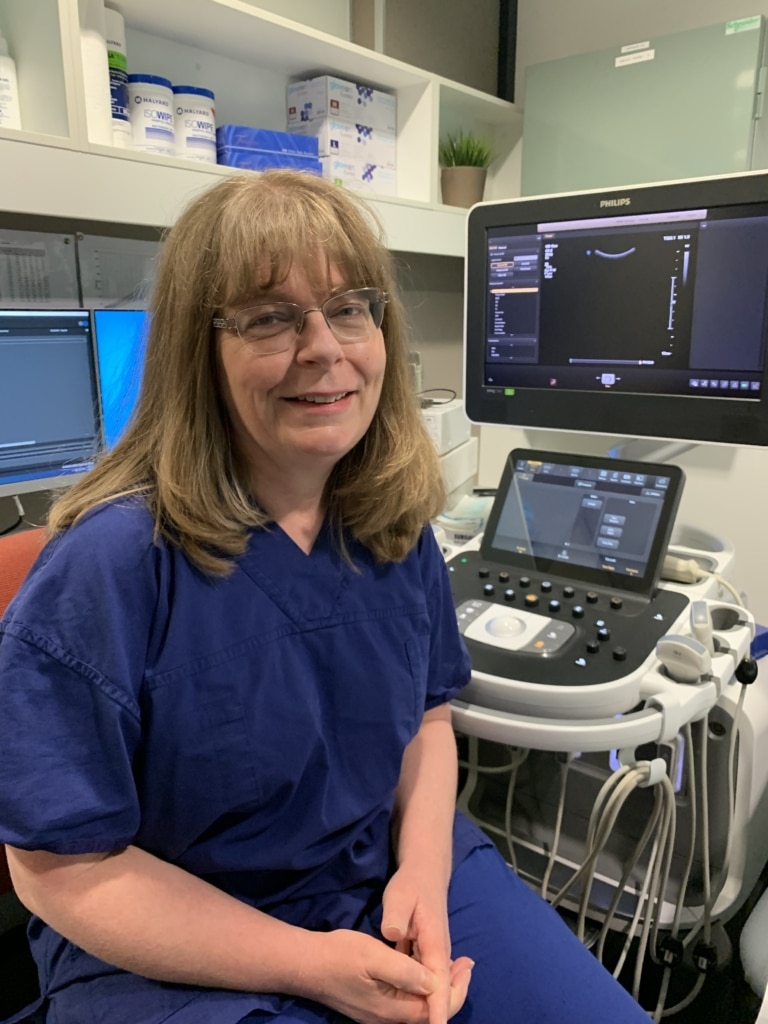
Dr Deborah Nisbet is a Victorian representative of the RANZCOG Twelfth Council
Dr Debbie Nisbet has been working in Obstetric and Gynaecological Ultrasound for over 20 years. Having entered Obstetrics and Gynaecology specialist training in 1993, she commenced Obstetric and Gynaecological ultrasound in 1997 and has pursued this career path ever since.
She works in both public and private practice in Melbourne.
RANZCOG Councillor in the Australian Capital Territory
Dr Elizabeth Gallagher

Dr Elizabeth Gallagher is an ACT representative of the RANZCOG Twelfth Council
Interview coming soon!
RANZCOG Councillors in New South Wales
Dr Marisa Martin
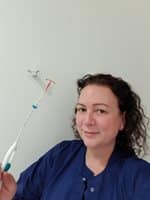
Dr Marisa Martin is a New South Wales representative of the RANZCOG Twelfth Council
I am a generalist obstetrician and gynaecologist. Currently Head of Department at Blacktown Hospital since February 2021.
I have worked as a Staff Specialist in Western Sydney since attaining my Fellowship after training through the Westmead ITP in 2014. At present I work as a 0.5FTE Staff Specialist at Blacktown Hospital and also practice as a VMO at Norwest Private and Westmead Private Hospitals.
I was born and raised in inner west Sydney. I am married with a daughter in primary school.
Why did you nominate for council and what do you want to achieve?
I want to endeavour to represent the College in a respectful yet progressive manner.
Working in an area of Sydney where health equity and community engagement can be challenging it is imperative that part of a health provider’s role encompass advocacy for the patients that we service. A position within Council would allow a greater platform for inequity issues to be addressed and opportunities that would not be available at a local level.
You represent NSW. What are the issues in your state?
Similar to other states I expect. The training opportunities particularly with respect to gynaecological surgery exposure are concerning. Novel approaches to attaining Fellowship need to be developed and supported.
What does the College mean to you?
I have always been grateful for the excellent training I received through the College program. Throughout my Fellowship I have remained actively involved in various College activities. I have acted as both a DRANZCOG and an ITP Training Supervisor for 4 years with the last 2 years focusing on Advanced trainees.
I have also been involved in the FRANZCOG OSCE. Primarily serving as an Examiner but elevating to the position of Exam Coordinator and member of the Examination & Assessment Committee in 2021.
Tell us something that most people would be surprised to know about you.
I trained as an interpreter whilst I was at university and worked at the Sydney Olympics – one of the most interesting and stimulating opportunities I have had the privilege of experiencing.
Prof Thierry Vancaillie
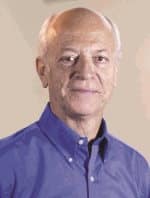
Prof Thierry Vancaillie is a New South Wales representative of the RANZCOG Twelfth Council
I was born in Bruges, Belgium. I went to medical school in Namur and Leuven, Belgium. I consider myself quite lucky as I witnessed the first dedicated pelvic pain clinic with Professor Marcelin Renaer as a medical student and spent time at the microsurgery centre in Leuven when Rob Winston came from the UK to run his tubal re-anastomosis studies. We’re talking late 1970’s when I was still a student, but these two people have left quite an impression on me. I then did five years of training in O&G in Brussels, Munster and Bremen. These were the days of emerging endoscopy – the beginning of hysteroscopy and laparoscopy, quite exciting actually. I probably need to write a book one day! I was privileged to meet with Bruhat, Semm, Reich, Wamsteke and many others, and to be involved in the development of new instrumentation and techniques. After spending twelve years at the University in San Antonio, Texas, my wife and I decided to leave the USA. Instead of returning to Belgium, we chose to come to Australia when the opportunity arose, thanks to Dr Hugh Torode (gynaecologist in Sydney). I started at the Royal Hospital for Women in Sydney on August 1, 1997 and I have been in Sydney ever since. I established the gynaecology outpatient clinic for pelvic pain and prolapse in 1998 with pelvic floor physiotherapist Sherin Jarvis and the Women’s Health & Research Institute of Australia (private practice) with RHW colleague Associate Profesor John Eden in 2007. WHRIA has since grown to a large inter-disciplinary team with six physicians and five allied health specialists.
I am currently an HMO at the RHW and continue to operate at the Prince of Wales Private Hospital. My ongoing involvement in teaching is through the pain fellowship, which is a joint public – private position for RHW and WHRIA.
Why did you nominate for council and what do you want to achieve?
The specialty of O&G has evolved greatly over the past four decades I have practiced medicine. I have a lived experience of governing bodies adjusting registrar training in Europe, USA and Australia, and am happy to use this to improve training in NSW. Training in Australia has traditionally followed the UK model, which is linked to the needs of the public hospital system. Other countries, where the separation between public and private is fundamentally different, use a different training system. I’d like to look at the benefits of both systems to improve training and patient-centered care by our trainees.
Another issue which I would like to explore more is the increased corporate involvement in health care, when private practice becomes a business: there are increased legal ramifications, there is greater emphasis on prevention and wellbeing, there is a greater input of the consumer with an emphasis on shared decision making with the patient, there is a need to work in teams. And last but not least there are numerous unanswered ethical questions in the fields of clinical research, advertising of services and so on.
You represent NSW. What are the issues in your state?
The issues in NSW are likely to be the same as anywhere else in Australia. For instance, international research indicates that training in pain is a very small portion of the medical curriculum and this, unfortunately also applies to O&G. Considering one in five women suffers from pelvic pain, I feel we need to better equip our Fellows for what they will see in practice.
What does the College mean to you?
Henry VIII granted a group of physicians in London the right to self-govern more than 500 years ago. The reason then was to “guarantee that physicians were well trained and that quacks were eliminated”. This bottom line hasn’t changed, and our responsibility to ensure proper training and supervision, so that Fellows provide equitable, safe and appropriate patient care is just as important today, in training, as well as, in practice.
Tell us something that most people would be surprised to know about you.
I am a keen kayaker and feel very blessed to live in Sydney with its many waterways.
A/Prof Amanda Henry
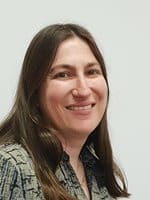
A/Prof Amanda Henry is a New South Wales representative of the RANZCOG Twelfth Council
I’m an academic obstetrician: Associate Professor at the University of New South Wales, and clinically based at St George Public Hospital in southern Sydney. St George is one of the most demographically diverse areas of Sydney, with over 40% of our pregnant women born in a predominantly non-English speaking country. It’s quite a contrast to when I was growing up in Newcastle, which at that time (not anymore!) was very white working class.
After graduating from Newcastle University, where I did an optional research Honours year and got bitten by the academic bug, I came to Sydney. During my intern yearr, I met my husband, who’s very much a Sydney lad. So apart from regional/rural rotations during training, I haven’t strayed far from the big smoke since. We have a teenage son and daughter who were born during my FRANZCOG training and who were pre-schoolers during a Fellowship year in Toronto, Canada. This gave me a deep appreciation for just how important family support was. Then after returning from Canada, I finally came back to my initial interest in obstetric research and did my PhD part-time while working for UNSW and St George full-time. Don’t think that’s the way I’d recommend to others to do it, but it’s more or less all worked out somehow!
Why did you nominate for council and what do you want to achieve?
I’ve had a long history working with RANZCOG. First as a trainee representative (I was actually Chair of Trainees’ Committee back in 2009 when it became a full Committee of Council) and then as a Training Supervisor and ITP Coordinator for St George Hospital since 2016. I actually hadn’t planned to nominate for Council this round as I know from being a trainee rep how much work it is to properly represent your region on Council. And COVID-19 has, if anything, increased both my academic and clinical support duties. However, when the initial Council nominations only filled one of the four NSW positions, I’m guessing because so many colleagues just don’t have the bandwidth beyond daily life right now, I decided it was time to step up.
In terms of what I hope to achieve, I would like to strengthen the involvement and sense of connection of NSW Fellows with their College, which I think has been waning over time. With my educational/academic background, I would also hope to be involved in RANZCOG Training evolution (including curriculum development) to reflect changing and updating competencies required of FRANZCOG, while keeping in mind that for everything that gets added to Training (or to CPD, once Fellowship is attained) something needs to be removed to avoid overburdening a very full set of expectations. I would particularly like to contribute to additional options and training opportunities for Advanced Trainees and New Fellows that I wish had been available to me, such as understanding hospital and private practice governance, financial, and risk management structures.
What issues face New South Wales, the state you represent?
Obviously the COVID-19 pandemic is a huge issue currently. In the immediate sense the high Sydney caseload is of course extremely disruptive to daily life, clinical practice and income both public and private, delivering appropriate women’s healthcare (including in the face of issues such as increased carer work that is largely falling on women, the “pink recession”, and increased domestic and family violence), and keeping our workforce safe, sane, and trained. However, there will also be many longer-term flow-on effects in all these areas, so even once the acute crisis passes I think we’ll be dealing with the aftermath for a number of years.
Moving beyond COVID-19, I see lots of issues with training and workforce, including having a pathway for the increasing number of very competent JMOs who never manage to get onto the FRANZCOG Training Program, and being realistic about what skillset a new FRANZCOG will have without totally splitting into obstetric training versus gynaecology training. Flowing on from that of course is credentialling, scope of practice, and mentoring/limited supervision when attaining competence in new procedures for FRANZCOGs. For example, I personally haven’t done clinical gynaecology for 10 years, but there’s currently nothing about my registration or my clinical appointment to stop me heading up a gynaecology clinic or a theatre list tomorrow, which would definitely not be in anyone’s best interests! It’s a difficult nettle to grasp, however, the process is already underway for areas like minimally invasive surgery, and better that we, as a College, do it than potentially have a regulatory patchwork imposed upon us.
What does the College mean to you?
First and foremost, RANZCOG is the sum of its people: Fellows, Diplomates, trainees, staff, and the various affiliated/associated members. It’s hard to remember when annual subscriptions, CPD deadlines, training fees or exams roll around, but the College is not “them”, it’s all of us. I do think that the bureaucratic processes any large organisation relies on, including RANZCOG, means there’s often a big disconnect between the College and its members. Hopefully services like Trainee and Member Support are helping emphasise the collegiate nature of RANZCOG, but still has some way to go. The other thing I always think of when I think of the College is its motto “Excellence in Women’s Health”. Thats a reminder that our purpose is striving for the best for the women we serve, both in daily clinical practice and more broadly.
Tell us something that most people would be surprised to know about you.
Hmmm…..well, given my many years lacking athleticism, it may surprise most people to know that I have a black belt in Taekwondo. It was my sport during university, and I was actually both fit and flexible for a few years there! My children have more than surpassed me though – they both have their 2nd Dan Black Belts, so don’t ever make the mistake of messing with them….
Dr Jessica Caudwell-Hall

Dr Jessica Caudwell-Hall is a New South Wales representative of the RANZCOG Twelfth Council
Interview coming soon!
RANZCOG Councillors in South Australia / Northern Territory
Dr Kasia Siwicki

Dr Kasia Siwicki is an SA/NT representative of the RANZCOG Twelfth Council
Interview coming soon!
Dr Heather Waterfall

Dr Heather Waterfall is an SA/NT representative of the RANZCOG Twelfth Council
I am a generalist O&G, working privately in the Adelaide Hills, though currently on maternity leave (back at work next month) after my twins were born in December. Somehow, I did my last delivery at 35 weeks, finished work that week and then my daughters were born three days after my last clinic session.
Why did you nominate for council and what do you want to achieve?
This is my second council term. I nominated for council to represent the junior/recently graduated fellows, having myself only finished training in 2018.
You represent South Australia. What are the issues in your state?
We are lucky to have a very collaborative group of fellows. it is a privilege to be able to assist with education and networking opportunities.
What does the College mean to you?
RANZCOG is more than a training organisation. I believe it supports all fellows to be a collegiate, promotes safe and evidence-based care, and provides a voice on women’s issues.
Tell us something that most people would be surprised to know about you.
I’m not sure I can surprise anyone. I am pretty open and I’m not backwards in coming forward!
RANZCOG Councillors in Queensland
Dr Kathy Saba
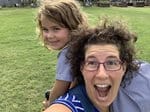
Dr Kathy Saba is a Queensland Representative of the RANZCOG Twelfth Council
I am writing this poolside at my kids’ morning swimming lesson while clock-watching the last 9 minutes of my obstetric on-call shift tick away. On the other side of this piece of paper is retrieval information I’ve just taken for a 27-week in utero transfer for Preterm ruptured membranes and my 6-year old’s spelling practice. Hi, my name is Kathy Saba, and I represent those other Fellows and trainees also residing on “juggle street”.
I am a part-time public O&G Consultant at the Royal Brisbane and Women’s Hospital, a busy tertiary unit. I have a day-and-a-half off a week to help get the family balance right.
Why did you nominate for council and what do you want to achieve?
I have enjoyed being involved with College activities, through being a trainee rep and then State Committee member since 2008. I nominated for Council so Queensland could have representatives more reflective of current College membership. I cannot remember when Queensland last had a female Councillor – and now we have two. I would like to maintain and improve communication and engagement with Members and trainees. There is so much rewarding work at RANZCOG – contributing to examinations, reaccreditation visits, Diploma and pre-exam courses. It would be great to see more Fellows involved in College work (with the added bonus of CPD points!).
You represent QLD. What are the issues in your state?
I feel one of our biggest issues in Queensland is maintaining the regional and rural maternity workforce. We are such a big state and we have large regional towns with maternity services dotted up the coast. Each of those towns would support more rural hospitals with GP obstetricians. It is important that rural hospitals have the staff to safely run maternity services and the clinical support and upskilling opportunities from their larger regional and tertiary centres.
What does the College mean to you?
RANZCOG means a sense of belonging and support for Members and trainees, and the key organisation advocating for and maintaining high standards in Women’s Health.
Tell us something that most people would be surprised to know about you.
In 2002 I worked overseas as an SHO in Obstetrics and Gynaecology in Oxford and Dublin. But the best part was the next 6 months where I didn’t work and travelled around Europe. I fancied myself as a bit of a travel writer and would send long emails back to friends and family of my adventures. I had tickets to see Blink 182 at the Reading music festival in England on the same day as the interviews for the RANZCOG training program. My favourite registrar from resident days, Robyn Boston, suggested I should take this interview seriously and come home for it.
Dr Sam Scherman
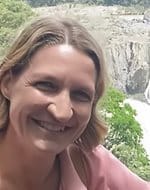
Dr Sam Scherman is a Queensland representative of the RANZCOG Twelfth Council
I grew up largely in Brisbane and did my first three years on the training program there. I then came to Cairns for my fourth year of training and returned to Far North Queensland when I finished my training to take up a staff specialist position at Cairns Hospital. I am currently the Director of O&G at Cairns Hospital.
Why did you nominate for council and what do you want to achieve?
I nominated for Council as I believe that a lot of Fellows, particularly in non-metropolitan areas, feel disconnected and “far away” from the College, and I would like to change that, if I can, during my time on Council.
You represent QLD. What are the issues in your state?
One of Queensland’s main issues is the large geographical areas covered by some of its health services, particularly away from the southeast corner. There are also issues with attracting and retaining staff for regions outside of the metropolitan centres.
What does the College mean to you?
I feel that RANZCOG should be a place of advocacy for its members, as well as for the women of Australia and New Zealand, a place where all members feel included and feel that their issues are recognised.
Tell us something that most people would be surprised to know about you.
I have a bit of a “mixed bag” heritage in that my Mum is English, my Dad is Canadian, and I was born in South Korea!
Dr Gary Swift

Dr Gary Swift is a Queensland representative of the RANZCOG Twelfth Council
Interview coming soon!
RANZCOG Councillors in Tasmania
Dr Frank O’Keefe
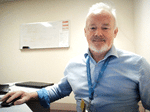
Dr Frank O’Keefe is a Tasmanian representative of the RANZCOG Twelfth Council
I currently work exclusively in the Public Hospital sector at North West Health Service, based in Burnie, Tasmania. I have been on the north-west coast for 3 ½ years. Prior to this, I worked in Private (Calvary Hospital) with a Public VMO appointment at Royal Hobart Hospital. I filled a casual vacancy on College Council in 2016, representing Tasmania, and have continued to serve having been re-elected twice by my peers.
Why did you nominate for council and what do you want to achieve?
I nominated for 12th Council to contribute to the training of our future leaders in Women’s Health to help ensure quality learning opportunities continue in our training hospitals. I am also passionate about equity of care regarding Women’s Health issues ¬I have 3 sisters and 3 daughters!
You represent Tasmania. What are the issues facing your state?
Tasmania is small (population 520,000) but rural and remote, provincial with tertiary facilities. The majority of our obstetrics is supervised by O&G generalists and Midwives with help from a single overworked MFM. Gynaecology is also served by generalists although there is a subspecialist Gynae-oncology service. We are dependent upon Trainees being multiskilled upon obtaining Fellowship to be able to serve our population, thus the declining exposure to major surgical cases during ITP and generalist training is potentially a big problem.
Subspecialities such as Urogynaecology are underrepresented in Tasmania, so it’s the Generalist domain once again. We do not have a dedicated Multidisciplinary Endometriosis Service.
What does the College mean to you?
College has a unique position in being able to advocate for Women’s Health issues and oversee the training required to meet that end. I enjoy the training process and journey, watching our Trainees develop and grow.
Tell us something that most people would be surprised to know about you.
Something most people don’t know about me? I’m an ex-AFL umpire, a bagpiper, and COVID-19 survivor. Just.
RANZCOG Councillors in Western Australia
Dr Anna Clare
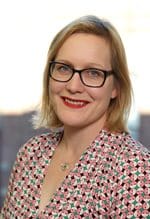
Dr Anna Clare is a Western Australian representative of the RANZCOG Twelfth Council
I am a general Obstetrician and Gynaecologist working at Fiona Stanley Hospital in Perth. I originally trained in the UK; I grew up in London, went to medical school in Manchester and trained in O&G in Liverpool. I’ve been in Perth for four and a half years as a senior registrar and then consultant. I have also worked as a junior doctor in Queensland and in Sydney. The focus of my work is in the public health system, but I also do some private gynaecology. My main interest outside of clinical work has been working on improvements in education and training. I enjoy helping junior doctors achieve their potential. I am married with two teenage children and outside of work I enjoy swimming, reading, eating out and in former days, travelling.
Why did you nominate for council and what do you want to achieve?
I am passionate about providing high quality health care to all women and I want to be involved in supporting the work of RANZCOG to achieve this. I’m also keen on promoting diversity and creating opportunities within training to ensure we have excellence in our work force for the future.
You represent Western Australia. What are the issues in your state?
A lot of the challenges within WA are related to its geography – it’s a huge state and ensuring equity of health care access to rural and remote communities is an ongoing challenge. I think the role of the GP Obstetrician and ACCRM are key to developing and maintaining services for women in these areas.
Within the metro areas there are a lot of young families who have moved to Perth for work from other states or countries who now face the challenges of starting and raising a family without the support of their relatives. It is important for us to work with our midwifery colleagues to reduce barriers to healthcare and ensure our services are accessible to all.
What does the College mean to you?
The College is the focus of promoting and driving excellence in women’s healthcare throughout Australia and New Zealand. It works to promote standards in education and training, to support specialists throughout the stages of their career and to act as our mouthpiece on issues of women’s health. I am proud to be a member of a college that is at the forefront of the national discussions on improving women’s lives.
Tell us something that most people would be surprised to know about you.
I am an experienced old-school film projectionist as I was involved in student film societies – a useless skill now that films are all digital!
Dr Scott White

Dr Scott White is a Western Australian representative of the RANZCOG Twelfth Council
Interview coming soon!
RANZCOG Councillors in New Zealand
Dr Emma Jackson
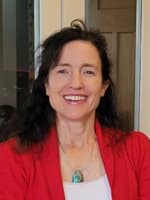
Dr Emma Jackson is a New Zealand representative of the RANZCOG Twelfth Council
I am currently the Clinical Director of Obstetrics and Gynaecology at Christchurch Women’s Hospital where I have been working as a generalist Consultant in Obstetrics and Gynaecology since 2011. I have been Clinical Director since October 2018 and work fulltime in the public system. Originally from North London, I went to Manchester University (like another of the Councillors, I note!) and then following my House Officer jobs for two years, came out to New Zealand (for a year!) and stayed.
My O+G training was in the South Island rotation (Christchurch, Invercargill and Dunedin) and following this I went back and spent time in the UK and then a year at Middlemore in a Fellow post prior to taking on my consultant role in Christchurch, starting the day before the February 2011 earthquake. My clinical work includes mainly gynaecology these days, predominantly laparoscopic surgery as well as outpatient hysteroscopy. Over time my Clinical Director role has taken over more of my time and I am still working on trying to keep the right balance between management and clinical work.
Why did you nominate for council and what do you want to achieve?
I am a current Te Kāhui Oranga ō Nuku committee member and have been a member for the last two terms. I am also the Chair of the Practice Review subcommittee and on the New Zealand Workforce Working Group. I would like to be able to promote better national and binational consistency (respecting the differences between our two countries) and equity in Women’s Health care in terms of access, treatment and outcomes, as well as the wellbeing of our Fellows and trainees.
You represent New Zealand. What are some of the issues you want to address?
As a health system that has, up until now, been managed and funded via a DHB (District Health Board) distribution of care, there is significant intra DHB variations in funding and availability of certain treatment options – the New Zealand Ministry of Health rarely ringfencing how dollars are spent. An example of this would be the provision of Anti-D to Rh negative women which, despite uncontroversial evidence of benefit, has been left for the individual health boards to try and implement (if they wish) along with providing the funding, rollout plans and negotiations with the Lead Maternity carers (LMC) providers about how and when it will be given. This has led to a current postcode lottery of provision across New Zealand.
I would hope that by leveraging on our binational agreements of best practice Te Kāhui Oranga ō Nuku – as the New Zealand branch of the College – along with He Hono Wāhine, the Māori Women’s Health committee, can advocate more strongly for best practice policies to be not just encouraged but enforced across Aotearoa, and work with the challenges of the implementation of the New Health system (Health NZ), which is due to come into existence 1 July, 2022 . At this time there will be a disestablishment of the 20 existing DHBs and the creation of the Health NZ and the New Māori Health Authority, so there is a time of some flux ahead for us.
What does the College mean to you?
I have been involved with College now for many years, first as part of the TAC and a training supervisor, and now on the committee for Aotearoa. I am always stunned to hear fellows saying “oh the College should do this or that”, or that “the College doesn’t care about X” to which I say “who do you think the College are?”, as it’s people like myself and others who try and do our best for women’s care by consensus and policy making, and that they should consider becoming part of it rather than complaining about it and thinking of it as some anonymous body that makes edicts.
I have certainly met great Fellow members and trainees during my time on the College, all with differing perspectives but a common interest in working to continue to improve things for Women’s Health. I would encourage all Fellows to consider getting involved with some aspect of College activity.
Tell us something that most people would be surprised to know about you?
In my younger years I enjoyed trying adrenaline provoking activities such as bungee jumping, hang gliding, and free fall and static line parachute jumps. Nowadays a run with my dog, and yoga generally suffices.
Dr Sue Belgrave
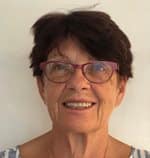
Dr Sue Belgrave is a Regional Fellows Representative of the RANZCOG Twelfth Council
I am an Obstetrician and Gynaecologist working in Auckland since 1991. I grew up in Hamilton and gained my medical degree through Otago University. My passion for Obstetrics started as a medical student was strengthened after three months in a small O and G unit south of London and is now part of my DNA. My training in Obstetrics and Gynaecology was in Auckland and London. My first seven years after qualifying as a specialist, was in a high-risk obstetric team at National Women’s Hospital in Auckland where I developed an interest and skills in O and G Ultrasound. From there, I moved north of the Bridge to become the Clinical Director of Obstetrics at North Shore Hospital. My husband and I had moved to the Northshore of Auckland and with the birth of my son, the job offer to lead a new department seemed a logical career progression. I have mainly worked in public health but was a partner in a private obstetric practice for several years and then continued with a small amount of private gynaecology work, primarily to maintain my surgical skills.
Why did you nominate for council and what do you want to achieve?
For many years, I was busy with a large clinical, administrative, and mentoring load, and for six years was the Chair of the New Zealand Perinatal and Mortality Review Committee, which was a full-time commitment. I presented my last PMMRC report in June 2018 and resigned my clinical directorship. I decided that at last there was time to commit to the College in a more direct way and I’ve been a Councillor for three years. I will continue for another term. I wanted to help raise the profile of New Zealand within our binational College and believe we have a different perspective to offer. I became involved with RANZCOG very late in my career but see the College will function best with a wide range of Fellows at different stages of their careers being involved. Our specialty is changing but obstetrics remains an extremely important part of our role and we need to support and develop training to meet the ongoing need and changing working environment.
You represent New Zealand. What are some of the issues you want to address?
Women’s health issues have not received the profile and importance many of us think they should and so I see RANZCOG having a role in advocating for women in Aotearoa. Recent gains in funding for Mirena IUCD and primary HPV screening have been hard won. Funding constraints are a major barrier to improvement initiatives as well as expensive medicines. There is inequity in health and social outcomes for Maori and Pacific women and again, RANZCOG has a role in highlighting this and supporting wider initiatives within the health system.
Tell us something that most people would be surprised to know about you?
Two years ago, I joined a Waka Ama team in a seaside town north of Auckland. Teams of six paddlers go out on the water enjoying the exercise and camaraderie, while preparing for races against other clubs.
RANZCOG Māori Councillor in New Zealand
Dr Philip Suisted
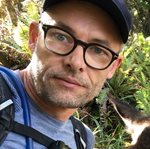
Dr Philip Suisted is the Māori representative of the RANZCOG Twelfth Council
Mauri tū, mauri ora.
Ko Philip Suisted ahau. Nō Whanganui-a-Tara ahau.
As a general Obstetrician and Gynaecologist working full time at Palmerston North Hospital, New Zealand, my interest in Laparoscopic Surgery drives a clinical focus on pelvic pain and an exposure to gender medicine, among other areas. As a Māori doctor my kaupapa matua (main purpose) drives a focus on equity in the health of our women and their whānau. My background in science drives a focus on data.
After growing up in Wellington, l headed south to study at Lincoln University, followed by ten years of state-funded science throughout the country with a team of forest and grassland ecologists. Every day a picnic in the bush – counting trees and measuring grass. I later traded all this for medicine at Otago University.
Why did you nominate for council and what do you want to achieve?
Me tū tautoko au ki ngā mahi kua mahia ke.
As a Māori Fellow of the College I will bring an indigenous voice and lens to the Council’s work. I have been privileged to be a member of He Hono Wāhine for six years now and I am proud of the genuine commitment of the College to help address Māori health for women and their whānau. In this role on Council I believe I can continue this momentum.
RANZCOG is the paramount body in the promotion of Women’s rightful access to a standard of health. I welcome the opportunity to work to empower the College to achieve better outcomes.
My previous training in ecology taught me that diversity builds stable systems and provides for opportunity. As a Māori Fellow in full time, obstetric and gynaecology practice in a regional hospital, I’d like to think that I would bring a diverse perspective.
Tell us something that most people would be surprised to know about you?
Turns out it was 23 years ago that I was co-named the Macpac Mountaineer of the Year. E hika!
RANZCOG Councillors representing Regional Fellows
Dr Romany Erwin

Dr Romany Erwin is a Regional Fellows Representative of the RANZCOG Twelfth Council
I became a Fellow of the College in 2020 and work as a generalist Obstetrician and Gynaecologist at Royal Darwin Hospital. I originally grew up on Bunurong land in a little coastal town called Inverloch before moving to the city for university and my O+G training. After spending time training at the Royal Women’s Hospital and Western Health I moved abroad to the Solomon Islands for six months and then have settled for now in the tropical Top End town of Darwin. It’s been a privilege to live and work on Larrakia land and lovely to return to my saltwater roots.
Why did you nominate for council and what do you want to achieve?
I was given the opportunity of getting involved part way through the last Council term when I became a Fellow in 2020. I think rural and regional practices are busy, complex and unique environments, and having representation for Regional Fellows on Council is important to ensure the College reflects and upholds the views and values of our diverse membership.
What are some of the issues you want to address?
I am pretty new to the Northern Territory to call myself a Territorian but I am starting to understand some of the unique issues and challenges we face.
The geographical remoteness of the Top End and Central Australia poses many challenges on delivering safe, quality care to the patient and, whilst we work hard on extending outreach services, sometimes the patients have to come to us, leaving their home and family when they most need these supports.
One of the most rewarding and interesting parts of moving to Darwin is partnering with GPO colleagues and remote midwives in Katherine and Gove; without these units more women will face isolation from their family and country during birth – and safe access to all health care for women and their families will be compromised. The safeguarding and support for these services to thrive are one of the most important issues and I am happy to see recognition and dedication being given to these priorities at RANZCOG.
Aboriginal and Torres Strait Islander women have had to navigate the impact that centuries of colonisation, dispossession and systemic racism have had on their ability to access culturally safe health services. The Northern Territory is fortunate to have amazing leadership from both Elders and young Aboriginal and Torres strait islander professionals walking a path towards improved health outcomes, but we still have a way to go and supporting that work has to be a priority.
What does the College mean to you?
The work we do as women’s health practitioners requires dedication and passion. It’s a long training pathway and a challenging vocation, and the moments of support and kindness I received from the College when times were tough stand out fondly in my memory. The changes I have seen over my time as a trainee and now as a Councillor with a focus on wellbeing and diversity are progressing the College in a direction that I think is exciting and where RANZCOG should be.
Tell us something that most people would be surprised to know about you?
Something most people would be surprised to know about me is that I am a keen Latin dancer! I find it a fantastic way of unwinding, for however long I am on the dance floor my mind lets go of all the busy thoughts and mental to do lists. It’s basically meditation to music that’s fun and a bit of a workout at the same time.
Dr Kathleen Braniff
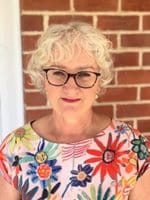
Dr Kathleen Braniff is a Regional Fellows Representative of the RANZCOG Twelfth Council
I grew up in Canberra, and then on a beef farm near Corryong in northeast Victoria. I did most of my training in Melbourne, and subsequently worked in Warrnambool and Mackay.
In 2020 COVID made it hard to see my family, who were all in Melbourne, and my husband and I decided to move back to Victoria to be closer to them. I loved living in Mackay and was sorry to leave the unit there, although after 10 years as Clinical Director I was ready to step down from that role.
I choose to live and work in regional centres, and have settled in Albury and Wodonga, doing public and private obstetrics and gynaecology.
I think we all have to contribute something to RANZCOG, and the time seemed right for me to do this by nominating for Council. My background gives me particular interests in regional recruitment and training, and in making sure that regional issues are represented at Council.